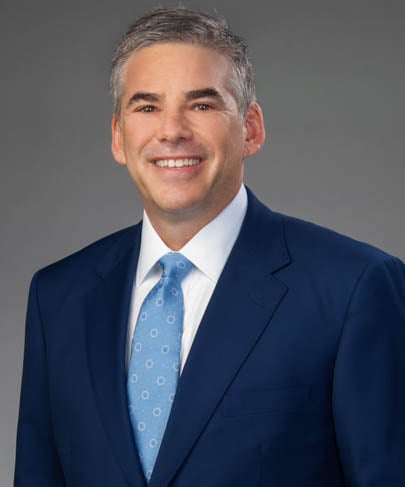One Big Beautiful Bill Act Expands QSBS Tax Incentives for Small Business Investment
- Federici, Luke T.
- Industry Alerts
Click “Subscribe Now” to get attorney insights on the latest developments in a range of services and industries.
On July 4, 2025, President Trump signed the “One Big Beautiful Bill Act” (the “OBBB”), which makes a number of highly beneficial changes to the tax treatment of Qualified Small Business Stock (“QSBS”) acquired by “non-corporate” taxpayers after July 4, 2025. The goal of these changes is to encourage investment in new companies by providing greater tax incentives to investors.
General Requirements for Stock to Qualify as QSBS
Generally, for stock to qualify as QSBS, it must have been originally issued to a “non-corporate” shareholder (e.g., individuals, certain trusts, and other pass-through entities such partnerships, LLCs taxed as partnerships and S corporations) by a domestic C-corporation whose aggregate gross assets were less than or equal to $50 million (now $75 million as discussed below) before and immediately after the issuance of the stock.
The shareholder must have received the stock in exchange for money or other property (excluding stock) or as compensation for services to the issuing corporation. During substantially all of the time the shareholder holds the stock, the company must use at least 80% of its assets in the active conduct of one or more qualified trades or businesses. Finally, to claim the gain exclusion under Internal Revenue Code (“IRC”) §1202, a selling shareholder must have held the stock for more than 5 years (the relaxed holding period under the OBBB is discussed below).
The OBBB’s Changes to QSBS Treatment
- Reduced Holding Period And New “Tiered” Exclusions
Prior Law - Stock had to be held for at least five years in any case, and the amount of gain that could be excluded under IRC §1202 was based on when the stock was acquired (all subject to the cap on the exclusion discussed in Section 2 below).- If the stockholder acquired the stock between August 11, 1993, and February 17, 2009, 50% of the gain was excludable;
- If the stockholder acquired the stock between February 18, 2009, and September 27, 2010, 75% of the gain was excludable;
- If the stockholder acquired the stock on or after September 28, 2010, 100% of the gain was excludable
OBBB Changes – For QSBS acquired on or after July 4, 2025, a shareholder who holds their QSBS for three years can now receive a 50% exclusion, a shareholder who holds their QSBS for four years can receive a 75% exclusion, and a shareholder who holds their QSBS for five years can receive the full 100% exclusion (all subject to the raised cap which is discussed immediately below).
- Higher Cap on Gain Exclusion
Prior Law - The amount of gain that could be excluded was capped at the greater of $10 million or 10 times the taxpayer’s adjusted basis in the QSBS.OBBB Changes - For QSBS acquired on or after July 4, 2025, the exclusion cap is increased to the greater of $15 million or 10 times the taxpayer’s adjusted basis in the QSBS. The new cap of $15 million will be indexed for inflation starting in 2027.
- Higher Threshold for Defining a “Qualified Small Business”
Prior Law - A domestic C corporation qualified if the value of its aggregate gross assets was less than or equal to $50 million before and immediately after the stock issuance.OBBB Changes – The aggregate gross asset cap for domestic C corporations has been increased to $75 million. The new cap of $75 million will be indexed for inflation starting in 2027. This allows for larger companies to qualify, which gives investors more options.
- Alternative Minimum Tax Preference Add-Back for Excluded Gains
Prior Law - For QSBS acquired before September 28, 2010, 7% of the excluded gain was added back as an AMT preference item. For QSBS acquired after September 27, 2010, because of the 100% gain exclusion, no AMT add-back applied.
OBBB Changes - For QSBS acquired on or after July 4, 2025, the 7% AMT add-back applies to the excluded portion of the gain for 3-year (50%) and 4-year (75%) holding periods. No add-back applies for 5-year holds because there is a 100% exclusion.
Conclusion
The OBBB has made significant changes to the treatment of QSBS in an effort to encourage investment in small businesses in the U.S. Shareholders (including founders, investors and certain employees) now have more choices in the companies they wish to start and/or invest in and can now take advantage of QSBS benefits earlier than before the enactment of the OBBB.
For more information on the OBBB and to discuss how it may impact your corporate, tax, and estate planning matters, please contact J. Troy Terakedis (614-744-2589), Peter J. Kulick (517-487-4729), Luke T. Federici (775-223-9728), or another Dickinson Wright tax attorney.
Related Practices
Contacts


Recent Insights
- January 28, 2026 Blogs A Smart Way to Plan for High State Income Taxes: The Nevada ING Trust
- October 15, 2025 Media Mentions Angelique Neal was recently quoted in a Lawyers Weekly article, “6th circuit revives late tax petition on equitable tolling.”
- July 31, 2025 Blogs Tax Planning Misstep? Ontario Court of Appeal Says No to Rectification
- June 17, 2025 In the News Joanne Faycurry and Samuel McKim Join Dickinson Wright Troy Office
- April 28, 2025 In the News Dickinson Wright Launches High-Growth Companies Practice in Toronto
- April 01, 2025 Events Join Dickinson Wright at the Nevada Tax & Trust Conference
- October 16, 2024 In the News Ralph Levy and Cyndi Moore’s article was recently published in the Journal of Health Care Compliance, "Tax Issues in Issuance or Repurchase of Equity in Physician and Other Practice Groups."
- April 3, 2024 In the News Ellad Gersh Joins Dickinson Wright Toronto Office as a Partner
- September 20, 2023 Industry Alerts IRS Orders Immediate Stop to New Employee Retention Credit Claims and Announces Future Settlement Program

